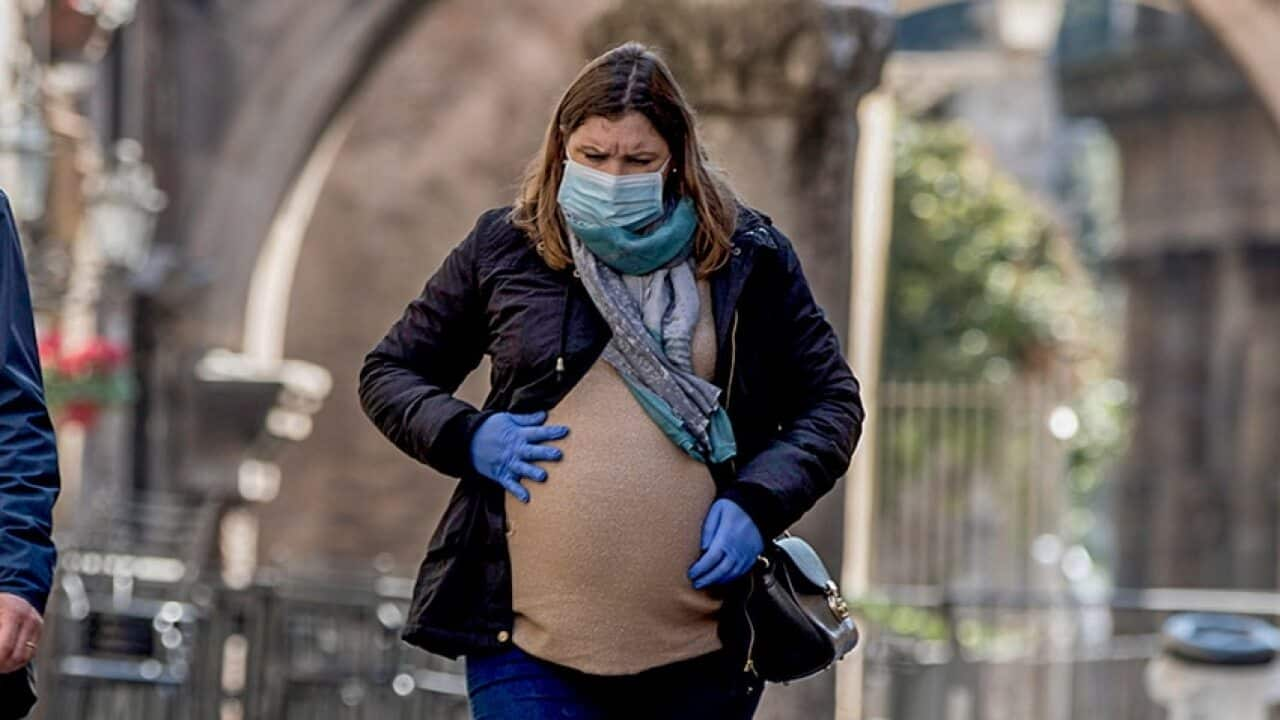Less than three weeks ago Lola Lorber had been routinely guiding women through childbirth. She would be in the room, right by their side, offering support -- both physical and emotional.
In the days of March that all changed as the coronavirus pandemic took hold of New York City.
“The last in-person birth I went to was March 9 and I was already anxious about being in the hospital,” she said.
Lola lives in Brooklyn and is a birth and postpartum doula and a lactation counselor -- offering holistic support for parents. She would attend four to five births a month, while supporting families postpartum, and shadowing a breastfeeding class every Friday.
“By March 14 there was a totally different scene in the hospitals.”
Quickly, Lola found herself unable to attending birth after hospitals limited birth support to one person as the coronavirus began to run rampant through the state.
Lola’s home visits became increasingly precarious. One client paid for Lola’s Uber -- about $100 one way -- for postpartum support. She wore gloves and a mask, changed her clothes before entering the house, then again after. The home visits have now stopped, and the city has gone almost gone into a complete lockdown. New York City is now one of the worst affected regions in the US, which has the most cases in the world and more than the original epicentre, Wuhan.
The home visits have now stopped, and the city has gone almost gone into a complete lockdown. New York City is now one of the worst affected regions in the US, which has the most cases in the world and more than the original epicentre, Wuhan.

A US Navy hospital ship has arrived in New York to assist with the city's effort to curb the coronavirus outbreak. Source: The New York Times
Lola is remarkably moving her hands-on-work to a work-from-home environment, supporting her clients through FaceTime and WhatsApp.
So far, she has supported two couples through childbirth using texts and video calls. Staying up throughout the night, Lola was “on call” for whenever they needed support.
“He was holding up the phone and gave it to her at one point,” she said.
“It is really important to have doula support, even if it is virtual.”
Doulas are even suggesting bringing a tripod for the phone, Lola says.
“But I don’t think I will be going to those lengths,” she laughed.
Guidelines on visitors and support people haven’t been uniform across the city, causing confusion. Two major New York City hospitals, Mount Sinai and New York-Presbyterian, banned birth partners in their hospital last week. This forced the governor of New York, Andrew Cuomo, to issue a directive to hospitals that one support person for each pregnant women should be allowed. The hospitals reversed the restrictions.
“In no hospital in New York will a woman be forced to be alone when she gives birth,” the governor tweeted.
As countries around the world shut down to curb the worst pandemic in 100 years, women continue to give birth in a scenario most would have never comprehended.
In many circumstances, postnatal and antenatal appointments are being cancelled, delivered remotely, or in person without partners. Antenatal classes provided by the NHS and voluntary organisations have been cancelled in the United Kingdom.
In Australia, a doula was asked to leave a room while their client was in full labour because the a state government had changed its policies on hospital visitors.
“We had a mother, one of our clients, supported by the doula. She was in full labour and the Queensland government had announced new measures. She was asked to leave,” explained Paulette d'Argent, the services manager at the Australia Doula College.
“She had already been in the room supporting the client, and she was asked to leave.” The changing policies from state to state was confusing, Paulette explains, but now hospitals across Australia are allowing just one support person.
The changing policies from state to state was confusing, Paulette explains, but now hospitals across Australia are allowing just one support person.

A new coronavirus testing site on Staten Island, New York City. Source: Starmax
In some circumstances, that is the doula. Quarantine measures have forced some partners to stay at home to care for kids in circumstances where grandparents would normally babysit.
And those doulas not at births, like Lola, are using technology to support clients: video calls and texts.
Paulette is spending most of her time speaking to soon-to-be mothers who are stressed about the uncertainty of their birth.
“Our concerns are exacerbation of mental health for women and their partners,” she said.
Lola stressed that although some support is now virtual, it is still vital.
“If you are having a baby at this time, get as much information as you can, even if it is virtual.
“Talk to your healthcare provider about their COVID-19 precautions.”










